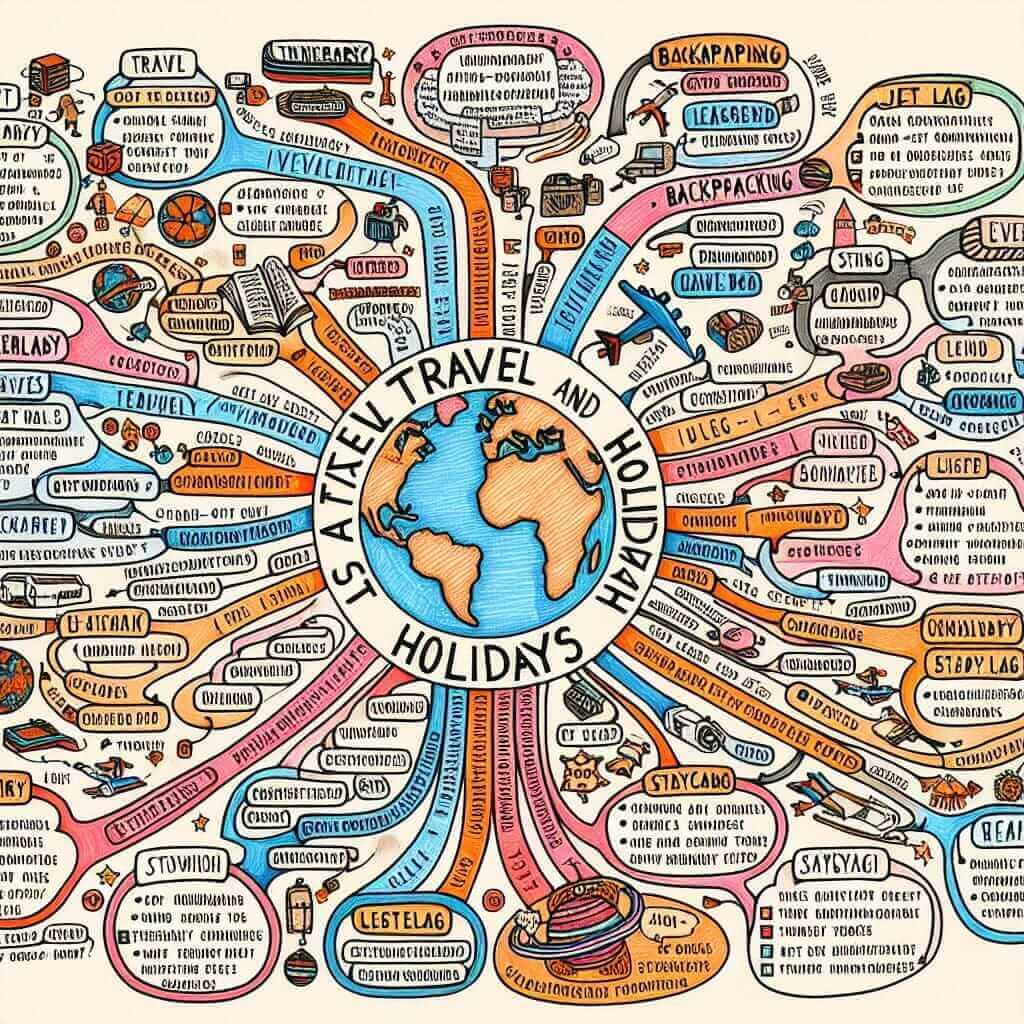As an IELTS instructor with over 20 years of experience, I’ve encountered countless students asking, “How can I effectively answer ‘How do you spend your holidays?’ in the IELTS Speaking test?”. This seemingly simple question often throws test-takers off guard. But fret not, because this guide will equip you with the strategies and insights to confidently discuss your holiday experiences in a way that impresses the examiner.
Understanding the Importance of “How Do You Spend Your Holidays?” in IELTS Speaking
The IELTS Speaking test assesses your ability to communicate effectively in English. While it might seem like a casual conversation, the examiner is evaluating your fluency, vocabulary, grammar, and pronunciation.
When you’re asked about your holidays, the examiner isn’t just looking for a list of activities. They want to see how well you can:
- Use a range of vocabulary related to leisure and travel.
- Structure your response in a coherent and engaging manner.
- Provide specific details and examples to support your points.
- Demonstrate your ability to use different tenses (past, present, future) to discuss past holidays, current habits, and future plans.
Crafting Your Response: Strategies for Success
Here’s a breakdown of how to approach this common IELTS Speaking topic:
1. Brainstorming and Vocabulary
Before you jump into speaking, take a moment to brainstorm:
- Think about different types of holidays you’ve enjoyed: Have you had relaxing beach vacations, adventurous backpacking trips, or culturally immersive experiences?
- Jot down key vocabulary: Consider words related to activities (hiking, sightseeing, exploring), accommodation (hotel, campsite, Airbnb), transportation (flight, train, bicycle), and feelings (relaxed, excited, rejuvenated).
- Practice using collocations: Instead of simply saying “I went to the beach,” say “I spent a relaxing week lounging on the beach” or “I went on scenic coastal hikes.”
2. Structuring Your Answer
A well-organized response is crucial. Follow this structure:
- Introduction: Briefly state your general preference for holidays.
- Example: “I generally enjoy holidays that offer a mix of relaxation and exploration.”
- Main Body: Discuss specific holidays, providing details and examples.
- Example: “Last summer, I went on a memorable trip to Italy. I spent a week exploring historical sites in Rome, indulging in delicious pasta dishes, and soaking up the vibrant culture.”
- Conclusion: Briefly summarize your thoughts on holidays.
- Example: “Overall, I believe holidays are essential for recharging and creating lasting memories.”
3. Using Different Tenses
Remember to use a variety of tenses:
- Past Simple: To describe past holidays. (“Last year, I went to Thailand.”)
- Present Continuous: To talk about upcoming plans. (“I’m planning a trip to Japan next spring.”)
- Present Perfect: To talk about holidays in general. (“I’ve always enjoyed traveling to new places.”)
- Future Simple: To express future aspirations. (“One day, I’d love to visit South America.”)

Sample Answer and Analysis
Let’s look at a sample answer incorporating these strategies:
Examiner: How do you spend your holidays?
Candidate: “Well, I’m someone who cherishes holidays as they offer a much-needed break from routine. I generally prefer holidays that combine relaxation with a bit of adventure. For instance, last summer, I went on an unforgettable trekking expedition in the Himalayas. The breathtaking scenery, challenging trails, and sense of accomplishment were truly rewarding. I also enjoy exploring new cultures. A few years ago, I spent a month backpacking through Southeast Asia. I immersed myself in local customs, sampled exotic cuisines, and learned some basic phrases in the local languages. It was an incredibly enriching experience. In the future, I hope to go on a wildlife safari in Africa. I’ve always been fascinated by animals, and I think it would be incredible to see them in their natural habitat.”
Analysis:
- Vocabulary: The candidate uses a variety of words related to travel and leisure, such as “trekking,” “breathtaking scenery,” “immersing,” “exotic cuisines,” and “wildlife safari.”
- Structure: The response is well-structured, with a clear introduction, main body, and conclusion.
- Tenses: The candidate uses a mix of tenses to talk about past holidays, present preferences, and future aspirations.
- Details: The candidate provides specific examples and details to make their response more engaging.
Tips for Success
- Practice makes perfect: Rehearse answering common IELTS Speaking topics with a study partner or tutor.
- Record yourself: Listen back to identify areas for improvement in your fluency, pronunciation, and vocabulary.
- Focus on fluency over perfection: Don’t worry about making minor mistakes. The examiner is more interested in your ability to communicate effectively.
- Be enthusiastic: Show genuine interest in the topic and speak with energy.
By following these strategies and practicing regularly, you’ll confidently tackle the “How do you spend your holidays?” question in the IELTS Speaking test. Remember, it’s an opportunity to share your experiences, demonstrate your language skills, and impress the examiner. Good luck!